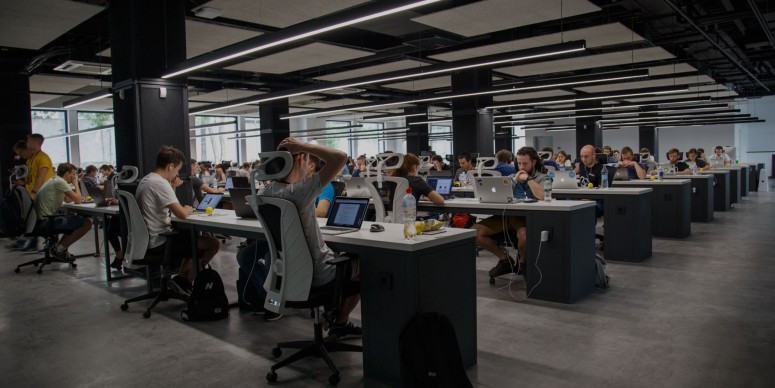The future of work in the digital world will depend on a combination of the advancements in technology and innovative business approaches. Products and services are changing, and moving towards digitalization, due to that, the way we work must also change.The way we connect has changed. Investing in communication is critical, however this transformation is also about adapting to new technological and cultural ways. Companies can no longer operate effectively through indirect and hierarchical manners.
The collaboration of individuals and teams across all levels of the organization is driving transformation in the digital, communicative and cultural aspects of a business.
The process of using data via feedback from all employees can improve productivity and align priorities. Having a common goal and communicating what the company wants to achieve, by building a culture of transparency, through innovative processes; internal digitalization related to communication.
A product can change, a service can change, but the work force behind what is being sold must also change. Internal innovative approaches can transform an organization. The implementation of new communication methods within a business might just be the starting point for that to happen, the same way we use to communication with clients, and analyse data to improve our services.
An ecosystem that provides transparency, and works towards adaption of not only the market, but also new approaches, will be less vulnerable to risks related to decrease in productivity, employment and company success.
Millennials are shaping the new processes of recruitment, and how work is accomplished. Within the next 3 years millennials will surpass the 50% margin of the workforce. A generation that sees digitalized systems as standard practice does not need to adapt. The previous generations however, remain working and are currently adapting to innovative changes.
Collaborative drive towards innovation between generations require progress.
Millennials live by different principals, similar to on-demand services; they have become accustomed to flexibility. By not providing them options, which has become a necessity, only leads to the restriction of what could be accomplished.Top Businesses and executives recognise that the future of work must be different of the traditional methods, which currently do not keep up with the constant changes of the market, recruitment, and the ideals of the new workforce.
